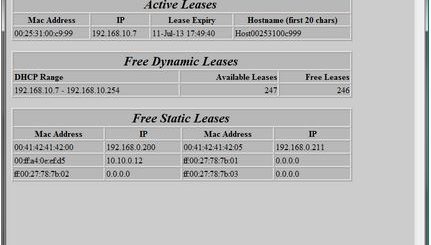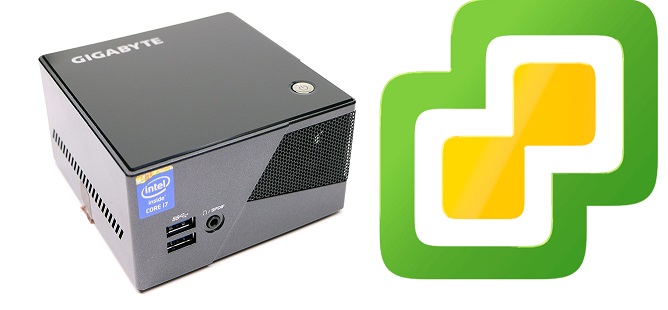Fedora 13 will be here soon
Fedora is my favorite flavor of Linux and I use it as a Desktop OS and as a Server. I just thought I would throw this out there for others to check out. Fedora for thoughs who didn’t know is an Red Hat based distro. I have made attempts to convert completely over to open source software, but there are just somethings that require Windows. Either way it is a good operating system and you should take a look at it. You can find out more at www.fedoraproject.org .Here is a list of features have been accepted by the Fedora Engineering Steering Committee for the Fedora 13 Release.
|
Final pieces of Anaconda storage rewrite |
|
|
Packages like gutenprint-cups, hpijs, and pbm2l2030 should be installed on-demand when hardware requiring those drivers is detected |
|
|
More webcams supported out of the box with a special focus on dual mode cameras |
|
|
Use very small images (iso, floppy, disk) to bootstrap a machine that then contacts a remote server for boot information to continue the installation process |
|
|
This feature brings version 1.41.0 of Boost to Fedora 13, together with Boost.MPI. As a side effect, Boost will be built with CMake (instead of BJam) |
|
|
Dogtag Certificate System is an enterprise-class open source Certificate Authority (CA) supporting all aspects of certificate lifecycle management including key archival, OCSP and smartcard management |
|
|
GNOME Color Manager is a session framework that makes it easy to manage, install and generate color profiles in the GNOME desktop |
|
|
The gdb debugger has been extended so that it can report detailed information on the internals of the Python 2 and Python 3 runtimes |
|
|
Include Gnome 2.30 |
|
|
Change ld default to –no-add-needed |
|
|
Add Community IntelliJ IDEA Community Edition packages and their dependencies into repositories |
|
|
Rebase to KDE 4.4 and offers new features such as PolicyKit 1 KAuth backend and improved PulseAudio integration |
|
|
This feature adds PolicyKit One support to Qt/KDE applications and the KDE desktop |
|
|
Fedora 13 features improved PulseAudio integration in KDE’s Phonon and KMix |
|
|
Allow devices in KVM guest virtual machines to retain the same PCI address allocations as other devices are added or removed from the guest configuration |
|
|
Re-base to the NetBeans 6.8 |
|
|
NetworkManager now supports easy-to-use Bluetooth Dial-Up Networking (DUN) support |
|
|
Control NetworkManager without a GUI |
|
|
The NetworkManager applet shows the current signal strength, cellular technology (GPRS/EDGE/UMTS/HSPA or 1x/EVDO etc), and roaming status while connected for cards where this functionality is supported |
|
|
Change the default NFS protocol to version 4 |
|
|
Support for mounting NFS servers over IPv6 |
|
|
Enhanced support for DisplayPort in X and kernel drivers for NVIDIA hardware |
|
|
A packaged version of python 3 that installs in parallel with the Python 2 stack |
|
|
Enhanced support for DisplayPort in X and kernel drivers for Radeon hardware |
|
|
Update to RPM 4.8 |
|
|
This feature enables an entirely free software alternative to Skype using standard IETF protocols along with support for direct peer-to-peer secure communications such as possible with ZRTP capable softphones and without the need for a mitigating “service provider” |
|
|
Include SSSD the default set of base Fedora 13 packages and configure it through authconfig,and firstboot |
|
|
Allow automatic and manual disk partition backups |
|
|
Systemtap allows event tracing of programs when they have static probes inserted |
|
|
Provide the latest Sugar Learning Environment, as well as an enhanced activity set, which can be used as a choice in the login screen and possibly a live spin |
|
|
Add support for LVM (and various other improvements) to the udisks and gnome-disk-utility stack |
|
|
Move to the the lastest supported version of Upstart |
|
|
A new user account dialog tool to create new users and edit user-related information in single-user systems or small deployments. |
|
|
Enable kernel acceleration for kvm networking |
|
|
x2apic is an x86 feature that improves performance, especially on large systems. Virt x2apic is a port of this feature for KVM, improving guest performance, especially for guests with many virtual processors |
|
|
Expose multiple ports to the guest in the form of simple char devices for simple IO between the guest and host userspaces |
|
|
Enable guest virtual machines to share a physical network interface (NIC) with other guests and the host operating system |
|
|
Zarafa Outlook Sharing is a Microsoft Exchange replacement |
|
Final pieces of Anaconda storage rewrite |
|
|
Packages like gutenprint-cups, hpijs, and pbm2l2030 should be installed on-demand when hardware requiring those drivers is detected |
|
|
More webcams supported out of the box with a special focus on dual mode cameras |
|
|
Use very small images (iso, floppy, disk) to bootstrap a machine that then contacts a remote server for boot information to continue the installation process |
|
|
This feature brings version 1.41.0 of Boost to Fedora 13, together with Boost.MPI. As a side effect, Boost will be built with CMake (instead of BJam) |
|
|
Dogtag Certificate System is an enterprise-class open source Certificate Authority (CA) supporting all aspects of certificate lifecycle management including key archival, OCSP and smartcard management |
|
|
GNOME Color Manager is a session framework that makes it easy to manage, install and generate color profiles in the GNOME desktop |
|
|
The gdb debugger has been extended so that it can report detailed information on the internals of the Python 2 and Python 3 runtimes |
|
|
Include Gnome 2.30 |
|
|
Change ld default to –no-add-needed |
|
|
Add Community IntelliJ IDEA Community Edition packages and their dependencies into repositories |
|
|
Rebase to KDE 4.4 and offers new features such as PolicyKit 1 KAuth backend and improved PulseAudio integration |
|
|
This feature adds PolicyKit One support to Qt/KDE applications and the KDE desktop |
|
|
Fedora 13 features improved PulseAudio integration in KDE’s Phonon and KMix |
|
|
Allow devices in KVM guest virtual machines to retain the same PCI address allocations as other devices are added or removed from the guest configuration |
|
|
Re-base to the NetBeans 6.8 |
|
|
NetworkManager now supports easy-to-use Bluetooth Dial-Up Networking (DUN) support |
|
|
Control NetworkManager without a GUI |
|
|
The NetworkManager applet shows the current signal strength, cellular technology (GPRS/EDGE/UMTS/HSPA or 1x/EVDO etc), and roaming status while connected for cards where this functionality is supported |
|
|
Change the default NFS protocol to version 4 |
|
|
Support for mounting NFS servers over IPv6 |
|
|
Enhanced support for DisplayPort in X and kernel drivers for NVIDIA hardware |
|
|
A packaged version of python 3 that installs in parallel with the Python 2 stack |
|
|
Enhanced support for DisplayPort in X and kernel drivers for Radeon hardware |
|
|
Update to RPM 4.8 |
|
|
This feature enables an entirely free software alternative to Skype using standard IETF protocols along with support for direct peer-to-peer secure communications such as possible with ZRTP capable softphones and without the need for a mitigating “service provider” |
|
|
Include SSSD the default set of base Fedora 13 packages and configure it through authconfig,and firstboot |
|
|
Allow automatic and manual disk partition backups |
|
|
Systemtap allows event tracing of programs when they have static probes inserted |
|
|
Provide the latest Sugar Learning Environment, as well as an enhanced activity set, which can be used as a choice in the login screen and possibly a live spin |
|
|
Add support for LVM (and various other improvements) to the udisks and gnome-disk-utility stack |
|
|
Move to the the lastest supported version of Upstart |
|
|
A new user account dialog tool to create new users and edit user-related information in single-user systems or small deployments. |
|
|
Enable kernel acceleration for kvm networking |
|
|
x2apic is an x86 feature that improves performance, especially on large systems. Virt x2apic is a port of this feature for KVM, improving guest performance, especially for guests with many virtual processors |
|
|
Expose multiple ports to the guest in the form of simple char devices for simple IO between the guest and host userspaces |
|
|
Enable guest virtual machines to share a physical network interface (NIC) with other guests and the host operating system |
|
|
Zarafa Outlook Sharing is a Microsoft Exchange replacement |




